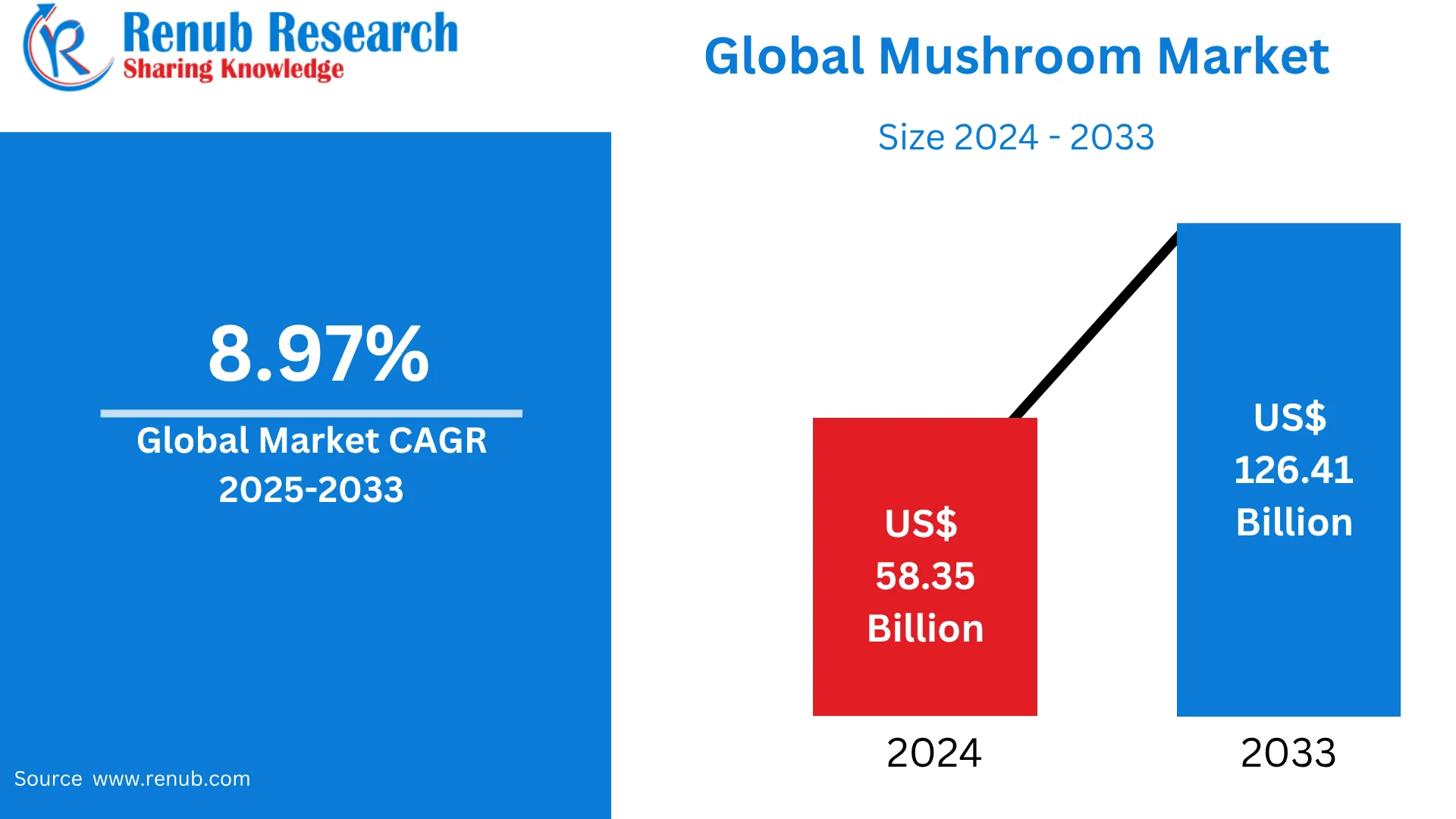Eco-Friendly Construction Materials Drive Surging Demand for Hempcrete Worldwide
According to Renub Research, the Global Hempcrete Market is expected to witness impressive growth between 2025 and 2033, driven by increasing demand for sustainable building materials, stricter environmental regulations, and a growing shift toward carbon-neutral construction. Hempcrete—a bio-composite made from hemp hurds, lime, and water—is rapidly gaining popularity due to its eco-friendliness, energy efficiency, and superior insulation properties.
👉 Access Full Report Here: Global Hempcrete Market Forecast 2025–2033
What is Hempcrete and Why is it Revolutionizing the Construction Industry?
Hempcrete, also known as hemp-lime, is a lightweight, breathable, and insulating material used as an alternative to traditional concrete. Unlike concrete, hempcrete does not rely on cement, making it significantly less carbon-intensive. In fact, hempcrete is considered carbon-negative, as the hemp plant absorbs more CO₂ during its growth than is emitted during production and construction.
Its remarkable attributes—including thermal regulation, moisture control, fire resistance, and pest deterrence—make it ideal for both residential and commercial construction, particularly in energy-efficient and passive housing projects.
Environmental Regulations and Green Building Certifications Accelerate Adoption
Governments and environmental agencies around the world are imposing stricter green building codes and carbon emission standards, encouraging the use of sustainable materials like hempcrete. Programs such as LEED (Leadership in Energy and Environmental Design), BREEAM (Building Research Establishment Environmental Assessment Method), and other environmental certifications recognize hempcrete’s contribution to energy conservation and indoor air quality.
Renub Research highlights that builders and architects are increasingly adopting hempcrete not only for its environmental benefits but also for its ability to meet evolving regulations while appealing to eco-conscious homeowners and developers.
Advantages That Set Hempcrete Apart
Hempcrete's growth trajectory is underpinned by its unique advantages over conventional materials:
-
Thermal Insulation: Hempcrete has a high thermal mass and natural insulating properties, reducing the need for mechanical heating and cooling.
-
Humidity Regulation: It naturally regulates indoor humidity, improving indoor air quality and reducing mold.
-
Lightweight and Flexible: Easier to handle and transport, reducing structural stress on foundations.
-
Fire and Pest Resistance: Naturally fire-retardant and unappealing to rodents and insects.
-
Carbon Sequestration: Absorbs CO₂, helping to offset emissions from other construction processes.
These qualities make hempcrete an ideal material for net-zero buildings, restoration projects, and low-energy architecture.
Growing Popularity of Sustainable and Modular Homes
As urbanization intensifies and housing demand soars, the construction industry is embracing modular, prefabricated, and eco-friendly homes. Hempcrete fits seamlessly into this paradigm, offering builders an easy-to-assemble, natural material that supports rapid construction timelines and sustainability goals.
According to Renub Research, the rise of off-grid housing, green living trends, and minimalist architecture is creating new avenues for hempcrete adoption across the U.S., Canada, Europe, Australia, and emerging markets in Asia-Pacific and Latin America.
Regional Analysis: Europe Leads, North America and Asia-Pacific Catch Up
Europe
Europe dominates the hempcrete market due to well-established hemp cultivation, government incentives for green construction, and widespread environmental consciousness. Countries like France, the UK, Germany, and the Netherlands are pioneers in hempcrete use for residential and commercial buildings.
North America
The U.S. and Canada are witnessing rapid growth, particularly after the legalization of industrial hemp farming under the 2018 U.S. Farm Bill. North American builders are increasingly exploring hempcrete for sustainable construction and retrofitting.
Asia-Pacific
Emerging economies such as India, China, and Australia are investing in eco-friendly construction technologies, backed by urban development programs and rising environmental awareness.
Latin America and the Middle East
These regions show untapped potential, with Brazil and UAE exploring sustainable housing solutions to meet housing shortages and climate goals.
Market Segmentation: Understanding the Hempcrete Value Chain
Renub Research segments the hempcrete market by various parameters, offering deeper insights into this dynamic industry.
By Application
-
Walls and Insulation
-
Roofs
-
Floors
-
Foundations
Walls and insulation remain the dominant application due to hempcrete’s insulating and breathability characteristics. Roof and floor applications are also gaining ground in colder regions.
By End Use
-
Residential Construction
-
Commercial Buildings
-
Industrial Facilities
-
Institutional and Public Infrastructure
The residential sector leads global demand, especially for eco-friendly homes, farmhouses, and off-grid structures. However, commercial and public infrastructure projects are also integrating hempcrete, supported by environmental mandates and public-private partnerships.
By Form
-
Blocks
-
Panels
-
Sprays
-
Loose Fill
The block and panel formats are favored in prefabricated buildings, while spray and loose-fill formats are used for insulation retrofits and bespoke construction projects.
Key Industry Players and Strategic Developments
The hempcrete market is still in its growth phase, with both start-ups and established companies competing for market share. Key players profiled in Renub Research’s report include:
-
IsoHemp
-
Hempcrete Natural Building
-
JustBioFiber
-
American Lime Technology
-
Lime Technology Ltd
-
HemBuild
-
Hempitecture Inc.
-
Oldcastle Infrastructure
These companies are focused on capacity expansion, research and development, and building awareness through educational campaigns and collaborations with construction firms. Startups are also exploring partnerships with agricultural cooperatives to secure a consistent supply of industrial hemp.
Challenges in the Hempcrete Market
While the outlook is optimistic, the industry faces some hurdles:
-
Lack of awareness and training among builders and architects
-
Limited regulatory standardization for hemp-based materials across countries
-
Higher initial costs compared to conventional materials (though long-term savings exist)
-
Supply chain constraints in regions where industrial hemp farming is restricted
However, these challenges present an opportunity for industry stakeholders to invest in education, advocacy, and supply chain infrastructure to scale operations and unlock the full potential of hempcrete.
Future Outlook: Hempcrete to Play a Central Role in Green Building Revolution
As sustainability becomes a global imperative, hempcrete is poised to become a cornerstone of next-generation construction practices. Renub Research forecasts that hempcrete will play a vital role in:
-
Net-zero carbon construction and energy-efficient homes
-
Disaster-resilient housing in flood-prone and fire-prone regions
-
Affordable, modular, and community housing projects
-
Green certification programs and government incentives
The hempcrete market’s success will be shaped by policy support, consumer demand, agricultural expansion, and innovation in building techniques.
About the Company
Renub Research is a Market Research and Consulting Company with more than 15 years of experience, especially in international Business-to-Business Research, Surveys, and Consulting. We provide a wide range of business research solutions that help companies make better business decisions. We partner with clients across all sectors and regions to identify their highest-value opportunities, address their most critical challenges, and transform their businesses.
Our wide clientele includes key players in Healthcare, Travel & Tourism, Food & Beverages, Power & Energy, Information Technology, Telecom & Internet, Chemicals, Logistics & Automotive, Consumer Goods & Retail, Building & Construction, and Agriculture. Our core team comprises experienced professionals with graduate, postgraduate, and Ph.D. qualifications in Finance, Marketing, Human Resources, Bio-Technology, Medicine, Information Technology, Environmental Science, and more.
Media Contact
Company Name: Renub Research
Contact Person: Rajat Gupta, Marketing Manager
Phone No: +91-120-421-9822 (IND) | +1-478-202-3244 (USA)
Email: rajat@renub.com






